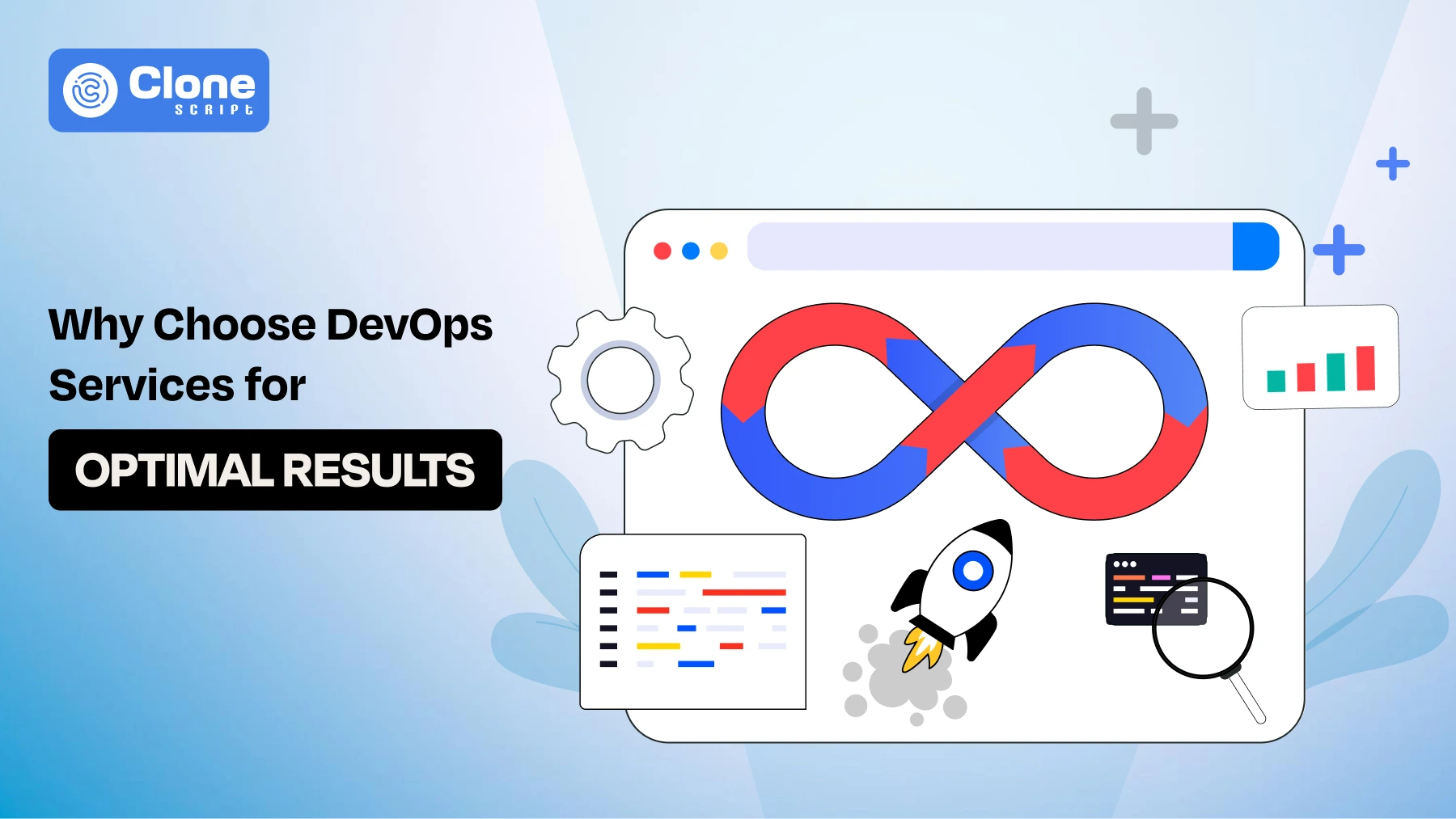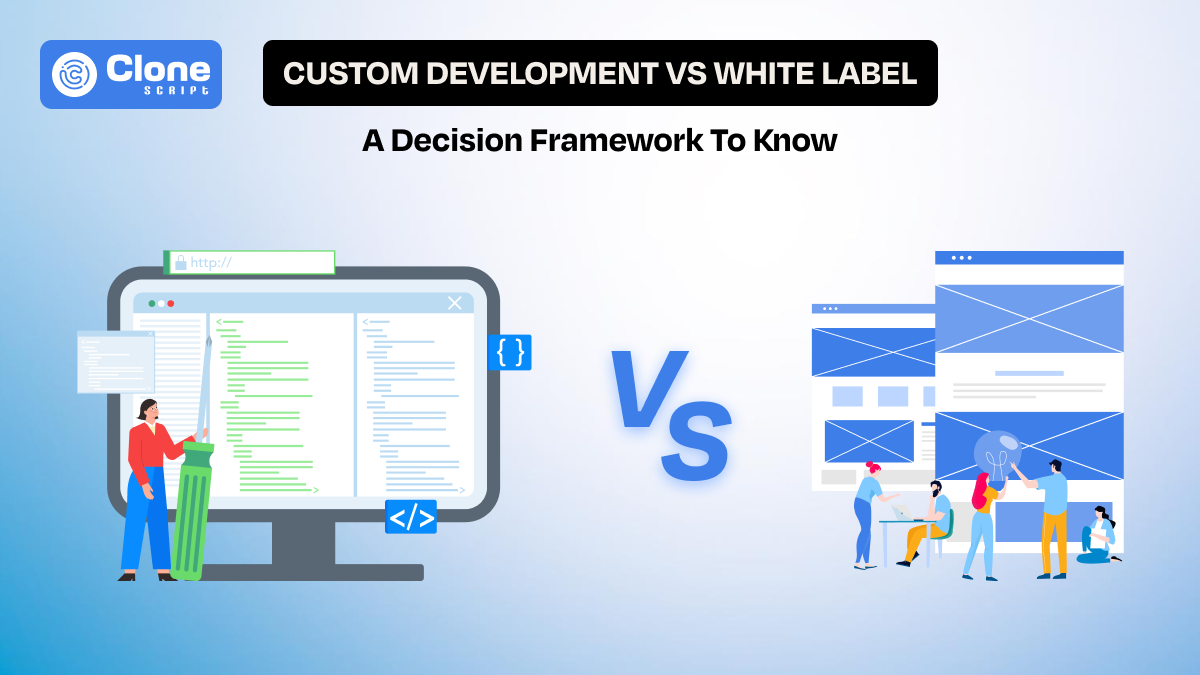Why Choose DevOps Services? Expert Guidance for Optimal Results
As a business owner, you want to move fast, deliver quality, and stay ahead, but delays, downtime, and tech hurdles keep getting in the way. Your team is working hard, but something’s missing: a smoother, smarter way to build and ship products.
That’s where DevOps comes in.
DevOps services offer more than automation. They bring structure, speed, and clarity to your software development process. If you’re tired of ideas and ready for predictable growth, this guide is for you.
We’ll break down what DevOps means for your business. Also, why could working with experts be the most strategic decision you make this year?
What Are DevOps Services?
DevOps is a combination of “Development” and “Operations,” emphasizing collaboration, automation, and continuous improvement across software development and IT teams. It’s not like software security testing.
DevOps services refer to the professional expertise and solutions that help organizations implement these practices effectively.
DevOps service providers typically offer:
-
Infrastructure automation (IaC): IaC means your servers and environments are set up using code, not manual processes. This makes deployment faster, consistent, and easier to scale or replicate.
-
CI/CD pipelines: They automate the process of testing and releasing code. Your team can push updates quickly and safely, without delays or downtime.
-
Cloud-native deployments: Designed for cloud platforms like AWS, Azure, or GCP, cloud-native apps are flexible, scalable, and resilient. It is perfect for growing businesses that need agility.
-
Monitoring and logging: These tools track system health, performance, and issues in real time. You get alerts before problems impact users, allowing you to respond quickly.
-
Security integrations (DevSecOps): Security is built directly into the development process, not added later. This reduces risks and ensures compliance from day one.
-
Containerization & orchestration (Docker, Kubernetes): Containers package your mobile and web app so it runs the same anywhere. Kubernetes helps manage and scale those containers automatically, reducing human error and downtime.
-
Performance optimization and scalability: DevOps teams fine-tune systems for speed and efficiency, and set up environments that grow with your business, without costly overhauls.
These services go far beyond writing scripts or installing tools. They deliver a strategic framework that aligns with your business goals, tech stack, and long-term vision.
Why DevOps Matters for Business Owners?
Many business owners focus primarily on product features, sales, and marketing. However, the underlying software delivery process directly impacts all of these. A sluggish deployment cycle, frequent outages, or missed deadlines can damage your brand, frustrate customers, and decrease trust.
Here’s how DevOps services directly contribute to business success:
1. Faster Time-to-Market
DevOps practices like CI/CD (Continuous Integration and Continuous Deployment) allow for rapid, automated releases. Businesses that adopt this solution often see a 30–50% reduction in release cycles.
Faster delivery = faster feedback = faster innovation.
Imagine deploying new features weekly instead of quarterly. That’s not just tech agility, it’s a competitive advantage.
2. Improved Software Quality
Automated testing, monitoring, and feedback loops in DevOps ensure bugs are caught early, before they affect end users. This proactive approach leads to fewer outages, smoother user experiences, and reduced rework.
With this advanced software development solution, teams see up to 50% fewer failures and 60% faster recovery times.
3. Cost Efficiency
DevOps reduces manual work, minimizes downtime, and increases productivity. Over time, this translates into significant cost savings, especially when paired with cloud-native tools that scale as you grow.
By optimizing resource usage, you reduce operational expenses without sacrificing performance.
4. Scalability and Flexibility
Whether you’re a growing startup or expanding enterprise, DevOps makes it easier to scale infrastructure, onboard new developers. You can roll out global updates for your software products. With tools like Kubernetes and Terraform, scaling becomes predictable and painless.
5. Enhanced Collaboration Across Teams
DevOps eliminates unnecessary steps. Developers, operations, QA, and even security teams work in harmony through shared responsibilities, versioned automation, and transparent processes.
This culture of collaboration creates innovation and minimizes finger-pointing during incidents.
Why You Should Choose Expert DevOps Services Instead of DIY
At this point, you might be thinking, “Why not just train our in-house team and implement DevOps ourselves?”
While that sounds viable in theory, in practice, it often leads to delayed adoption, misconfiguration, technical debt, and costly trial-and-error. This solution's success requires a deep understanding of tools, systems architecture, automation pipelines, and team dynamics. These can take years to master.
Here’s what expert DevOps services bring to the table:
-
Specialized Knowledge
Experienced DevOps consultants have implemented strategies across multiple industries and tech stacks. They know what works, what doesn’t, and how to tailor a solution to your specific business context.
-
Proven Frameworks and Accelerators
Instead of building everything from scratch, DevOps experts use proven templates, frameworks, and pre-configured pipelines to accelerate implementation and reduce risk. So, the output is expected to be free from any issues.
-
Vendor-Agnostic Cloud Expertise
Whether you’re on AWS, Azure, or GCP, or planning a multi-cloud approach, DevOps professionals architect scalable, resilient systems. They follow best practices to make your software product scalable and personalized according to your preferences.
-
Security and Compliance Built-In
With rising concerns about cybersecurity and compliance, these solutions providers integrate DevSecOps practices. They ensure that security checks are automated and embedded into every stage of your pipeline.
-
Measurable Results
Professional DevOps services focus on KPIs and metrics, like deployment frequency, lead time, and failure rate. So, you always have visibility into ROI and areas of improvement.
Key DevOps Services That Deliver Business Value
To fully take advantage of DevOps, it’s important to understand what services you’ll be investing in. Here are some high-value offerings business owners should look for when evaluating a DevOps partner:
-
DevOps Assessment and Strategy
Before jumping into tools, a good partner performs a thorough audit of your current development lifecycle, infrastructure, team structure, and pain points. Based on this, they prepare a custom roadmap aligned with your business objectives.
-
CI/CD Pipeline Implementation
Automated pipelines reduce human error and ensure code moves seamlessly from development to production. This includes automated testing, staging, approvals, and rollback capabilities.
-
Cloud Infrastructure Management
From cloud migration to infrastructure as code, expert teams analyze whether your environment is secure, scalable, and cost-effective.
-
Containerization and Orchestration
Using Docker and Kubernetes, DevOps engineers package your applications into lightweight containers that can run consistently across any environment.
This allows for easier updates, scaling, and rollback in case of issues.
-
Monitoring, Logging, and Alerting
It’s not just about app or website deployment, it’s also about visibility. Using tools like Prometheus, Grafana, or the ELK stack, providers set up dashboards that help you monitor application health, detect anomalies, and act proactively.
-
Security Integration (DevSecOps)
In today’s regulatory climate, security is not optional. Expert DevOps teams integrate security scanning, policy enforcement, and compliance checks directly into the pipeline.
How to Choose the Right DevOps Services Partner
Here are five key factors you should consider:
-
Proven Track Record: Look for case studies, client testimonials, and certifications that demonstrate the provider’s ability to deliver results.
-
End-to-End Capabilities: From initial strategy to post-deployment monitoring, your partner should offer full-lifecycle DevOps services.
-
Customization: Avoid one-size-fits-all solutions. A good provider adapts to your tools, goals, and internal team culture.
-
Ongoing Support & Training: Your team should be helped, not replaced. Choose partners who provide training, documentation, and ongoing support.
-
Clear ROI Focus: Make sure your DevOps partner sets measurable goals and tracks KPIs to demonstrate value over time.
Conclusion
If your organization is struggling with delayed releases, rising infrastructure costs, or an overwhelmed development team, now is the time to explore professional DevOps services. The combination of expert guidance, proven tools, and business-aligned strategy can transform not just your tech stack but your company’s ability to innovate, compete, and grow.
Remember, DevOps is not a “tech team initiative.” It’s a business helper. And in today’s digital economy, the companies that master it are the ones that win.
Ready to Transform Your Software Delivery?
If you’re a business owner looking to gain a competitive edge, now’s the time to invest in expert DevOps services. Get in touch with our team to explore how a customized DevOps strategy can accelerate your growth.
FAQs
-
What are DevOps services?
It refers to expert-led solutions that help businesses streamline software development and IT operations. They include practices like CI/CD, infrastructure automation, monitoring, security integration, and cloud-native deployments. All aimed at improving speed, quality, and scalability.
-
Why should a business use DevOps services?
Businesses choose DevOps services to release products faster, reduce downtime, improve software quality, and scale efficiently. With expert guidance, you avoid costly trial-and-error and ensure best practices are followed from day one.
-
What is the ROI of investing in DevOps?
Companies that adopt the solution often see up to 50% faster deployment times, fewer system failures, and improved team productivity. The ROI comes from faster go-to-market, reduced operational costs, and better customer satisfaction.
-
How do DevOps services help with scalability?
DevOps services implement infrastructure as code, containerization, and cloud orchestration, allowing your systems to grow automatically with demand. This means you can scale seamlessly without major reengineering.
-
Is DevOps only for tech companies?
No. DevOps benefits any business that relies on software, including eCommerce, finance, healthcare, logistics, and SaaS companies. If you have an app, platform, or e-commerce website that requires frequent updates, this can make your operations smoother and efficient.
-
What’s the difference between DevOps and traditional IT?
Traditional IT often separates development and operations, leading to slow, manual processes. This breaks down issues in application development by automating workflows, encouraging collaboration, and enabling continuous delivery of software.
-
Can small businesses or startups use DevOps services?
Absolutely. In fact, startups benefit the most because this advanced approach accelerates product development and helps them compete with larger companies. Many service providers offer scalable solutions tailored to smaller teams.
-
What tools are used in DevOps services?
Common DevOps tools include:
- CI/CD: Jenkins, GitLab CI, CircleCI
- Infrastructure: Terraform, Ansible, AWS CloudFormation
- Containers: Docker, Kubernetes
- Monitoring: Prometheus, Grafana, ELK Stack
- Security: SonarQube, Snyk, Aqua Security
-
How do I choose the right DevOps services provider?
Look for a provider with:
-
A proven track record
-
Experience across cloud platforms (AWS, Azure, GCP)
-
End-to-end services (strategy, implementation, support)
-
A focus on results and ROI
-
Strong client reviews or case studies
-
How long does it take to implement DevOps in a company?
Implementation time varies based on your current setup, team size, and goals. With expert services, many businesses begin seeing benefits in 6–12 weeks, with full transformation taking several months.
 BTC - Bitcoin
BTC - Bitcoin
 USDTERC20 - USDT ERC20
USDTERC20 - USDT ERC20
 ETH - Ethereum
ETH - Ethereum
 BNB - Binance
BNB - Binance
 BCH - Bitcoin Cash
BCH - Bitcoin Cash
 DOGE - Dogecoin
DOGE - Dogecoin
 TRX - TRON
TRX - TRON
 USDTTRC20 - USD TRC20
USDTTRC20 - USD TRC20
 LTC - LiteCoin
LTC - LiteCoin







